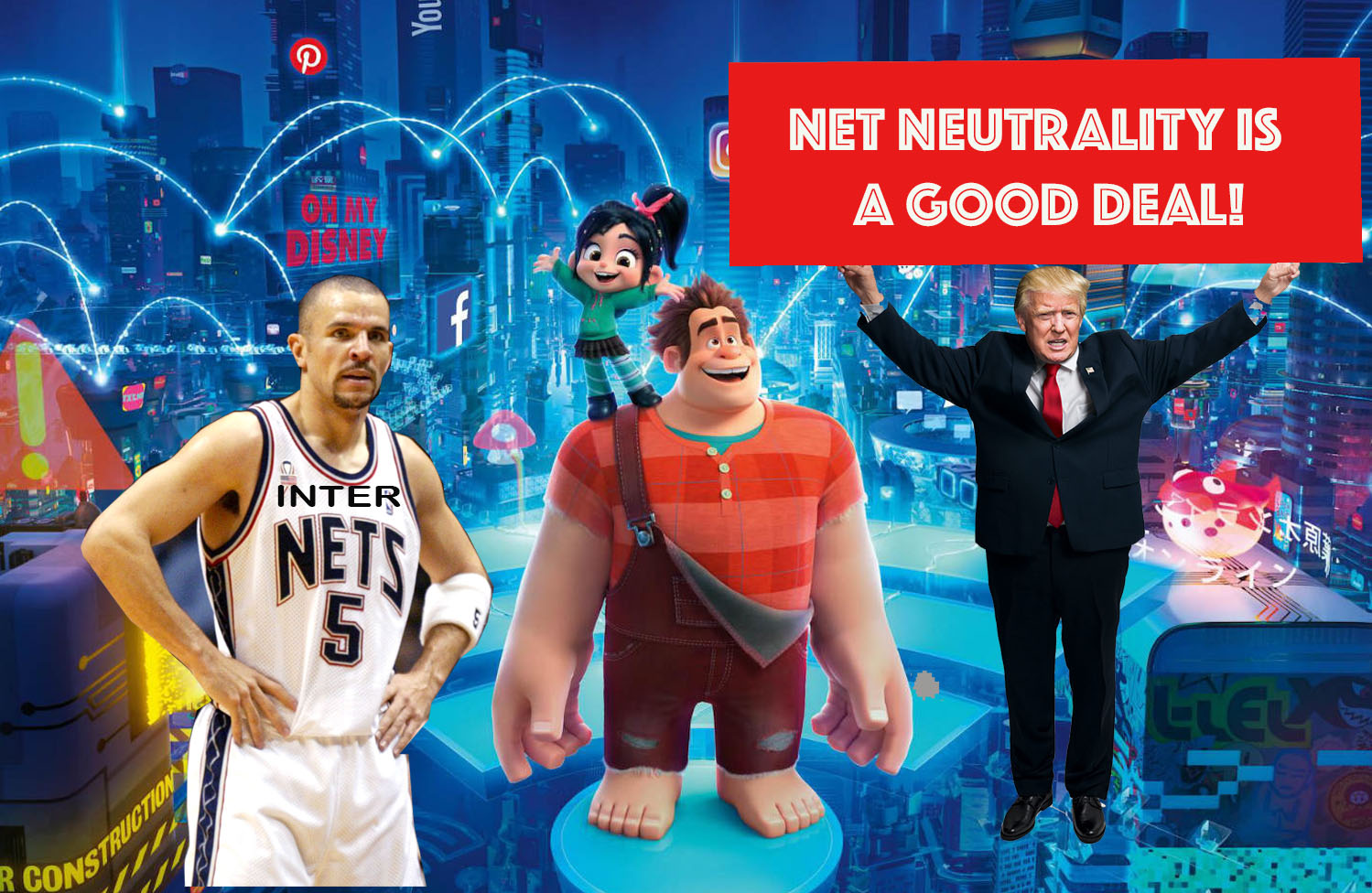Since the dawning of the internet, the world has become far more connected than ever imaginable. If a New Yorker wants to connect with their distant cousin in Azerbaijan, they need only have an internet connection and, within seconds, the two family members are speaking to one another with seamless efficacy.
Specifically, in the U.S., the internet allows Americans the freedom to access information, start and run their own online businesses, as well as a multitude of other net-powered activities. In a perfect world, the internet will remain a place where we can always access what we want, and large corporations can’t restrict us from seeing certain pieces of content that might dissuade our business with them.
However, I must regrettably inform you that we do not live in a perfect world.
A few years back, on December 14, 2017, President Donald Trump and the individuals making up his administration voted rid the world of “network neutrality,” a set of protections that has stopped service providers from censoring online content and manipulating consumer data sent/received over the internet. Confused? Let me clarify for you real quick. Imagine a world where internet providers could block you from searching sites containing information that might make them look bad. According to the American Civil Liberties Union, “companies might want to interfere with speech that makes them look bad, block applications that compete with their own, degrade or block access to union sites during a labor conflict, or increase their profit by forcing developers to pay more to avoid having their data blocked or slowed down.”
Net neutrality has kept American internet-users from being taken advantage of by their service providers but, considering that he’s a fan of big business, President Trump insisted we repeal the protections. Naturally, the Democratic leadership had a bone to pick with Donald regarding his actions and so they introduced the “Save the Internet Act” a few months back. The concise, two-page bill seeks to restore 2015’s net neutrally rules and, as of Wednesday, the bill was passed in the House of Representatives.
According to several reports, the bill, which was introduced yesterday, was heavily debated and discussed in the house. Of course, a gaggle of staunch Republican members of the house question both the morality of the lawmakers responsible for the bill as well as why the bill was even introduced in the first place.
Rep. Burgess (R-TX) was one such character making the bill’s proceedings longer than they needed to be when he asked that the Government Accountability Office issue a report on the effect of edge provers on internet freedoms, according to TechCrunch. For those unfamiliar with the term “edge provider,” these are companies that operate online sites that customers connect to over the internet like Google, Amazon, and Netflix. Rep. Burgess being the conservative that he is expressed his concerns that free access to the internet may interrupt the revenue streams for edge providers when, in fact, this is not the case.
“Today, the House took a firm stand on behalf of internet users across the country. We hope that that the Senate will recognize the need for strong net neutrality protections and pass this legislation into law. In the meantime, we will continue to fight in the courts as the DC Circuit considers Mozilla v. FCC, our effort to restore essential net neutrality protections for consumers through litigation.”
–Mozilla
Following the aftermath of the Trump administration’s repeal of net neutrality, broadband providers have run rampant. When the Federal Communications Commission (FCC) rolled back the protections, providers gained the power to block consumers from accessing certain websites, slow down their internet speeds, and censor other content. In the coming weeks we will see if the “Save the Internet Act” comes to pass. If it doesn’t, the internet as well as its users may see some pretty significant changes.





